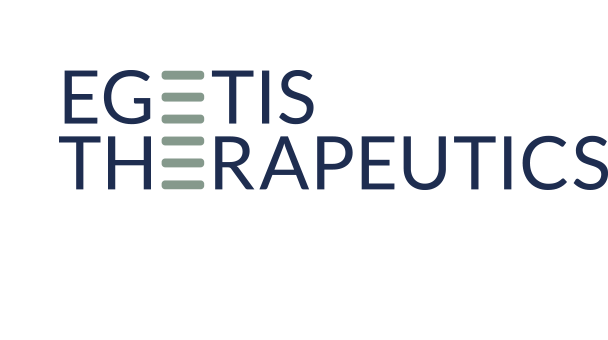Emcitate®- treatment of MCT8 deficiency
(Allan-Herndon-Dudley Syndrome)
About Emcitate® (tiratricol)
Emcitate is Egetis Therapeutics’ lead investigational therapy, developed for the treatment of monocarboxylate transporter 8 (MCT8) deficiency, also known as Allan-Herndon-Dudley Syndrome (AHDS) — a rare, X-linked genetic disorder associated with high unmet medical need. Emcitate is the first and only approved treatment for MCT8 deficiency in the EU.
Disease Background
Thyroid hormones are essential for the development and metabolism of virtually all tissues. Their cellular action depends on active transport across the plasma membrane, facilitated by specific transporters, including MCT8. Mutations in the SLC16A2 gene, located on the X chromosome, lead to MCT8 deficiency and primarily affect males.
MCT8 deficiency is characterized by two distinct but simultaneous clinical presentations:
-
Central hypothyroidism: Low levels of active thyroid hormone (T3) in the brain result in profound neurodevelopmental delays and severe intellectual and motor disability.
-
Peripheral thyrotoxicosis: Elevated circulating T3 levels in other tissues lead to persistent thyrotoxicosis, associated with complications such as cardiac arrhythmias, chronically low body weight, and increased risk of premature death.
This dual pathology significantly affects the quality of life of both patients and their caregivers, with long-term implications for cardiovascular and bone health.
Regulatory Designations
Tiratricol (the active substance in Emcitate) has received:
- Breakthrough Therapy Designation for MCT8 deficiency in the US (2025)
-
Orphan Drug Designation for MCT8 deficiency in the EU (2017) and US (2019)
-
US Rare Pediatric Disease Designation (RPDD) in 2020
-
Additional Orphan Drug Designation for Resistance to Thyroid Hormone Beta (RTHβ) in both the EU and US
Clinical Development
Triac Trial I (Phase 2b)
A multinational Phase 2b clinical study led by Erasmus University Medical Center (Netherlands) demonstrated statistically and clinically significant effects of Emcitate on key disease parameters in patients with MCT8 deficiency.
Long-term real-world data
An independent, investigator-initiated study led by Erasmus University Medical Center (Netherlands) evaluated the long-term efficacy and safety of Emcitate in 67 patients over a period of up to 6 years across 33 centers.
In December 2021, the European Medicines Agency (EMA) concluded that the clinical data from Triac Trial I and the long-term study were sufficient to support submission of a Marketing Authorization Application (MAA). However, during the evaluation data from part 1 of Triac Trial II to support the use in young children (see below) was included in the submission. Also data from the BE/BA trial was added to the dossier (see below).
Triac Trial II
This trial, sponsored by Egetis, evaluated early intervention with Emcitate in 22 boys under 30 months of age. While the primary endpoints—GMFM-88 total score and BSID-III Gross Motor Skill domain—were not met, key secondary endpoints showed significant and durable reduction in serum T3 levels, confirming Emcitate’s role in alleviating thyrotoxicosis. The safety profile was consistent with previous studies, even at higher doses adjusted for body weight.
Bioequivalence / Bioavailability (BE/BA)
A Phase 1, randomized, blinded, study in healthy adult male subjects (N=30), sponsored by Egetis, was to investigate the effect of food on bioavailability of tiratricol and to establish bioequivalence between the various tablet forms.
On February 12, 2025, the European Commission approved Emcitate as the first and only treatment for MCT8 deficiency in the EU.
EMCITATE® (tiratricol)
Emcitate® (tiratricol) is approved by the European Medicines Agency (EMA) for the treatment of peripheral thyrotoxicosis in patients with monocarboxylate transporter 8 (MCT8) deficiency (Allan-Herndon-Dudley Syndrome), from birth.
Learn more: EMA Product Information
This product is investigational and has not been approved by the U.S. Food and Drug Administration (FDA). Its safety and efficacy have not been established by the FDA.
Ongoing Development
ReTRIACt Study (USA, UK and The Netherlands)
To support the regulatory filing in the USA, Egetis is conducting a randomized study in at least 16 evaluable patients to confirm Emcitate’s effects on T3 levels. The trial design is available at clinicaltrials.gov under identifier NCT05579327.
Managed Access
Emcitate is currently available through Managed Access Programs in more than 25 countries, with national regulatory approvals. The latest program, a USA Expanded Access Program (EAP), was initiated at the request of the FDA.
Managed Access Programs enable access to investigational medicines in areas of high unmet medical need where no approved treatments exist, or such treatments are approved but not yet nationally reimbursed.


